Celebrate the International Day for Women and Girls in Science with us as we highlight the remarkable accomplishments of female scientists at the Department of Pathology and Laboratory Medicine. These women are driving health research forward and improving health outcomes through their significant contributions.
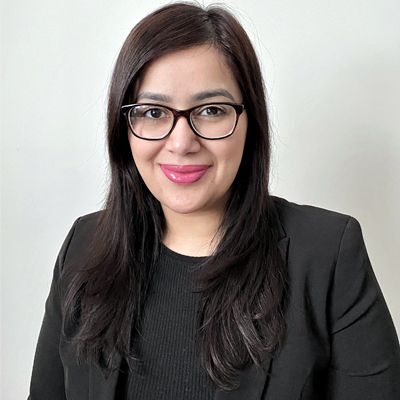
Mehwish Anwer, MPhil, PhD
Postdoctoral Fellow, DMCBH
Supervisor: Dr. Cheryl Wellington
Dr Mehwish Anwer joined the Wellington lab for her Postdoctoral research in 2021. Under the supervision of Dr. Cheryl Wellington, Dr Anwer investigates the processes that occur in the brain after traumatic injury and their association with dementia and posttraumatic stress disorder. She is the recipient of the 2022 Djavad Mowafaghian Centre for Brain Health Jock & Irene Graham Brain Research Endowment award and has been nominated by UBC for the 2023 Canadian Banting Postdoctoral Fellowship. Dr Anwer acquired her doctoral degree from University of Eastern Finland through the prestigious Marie Skłodowska Curie PhD fellowship awarded by the European Union. Dr Anwer is the President of the UBC Postdoctoral Association]
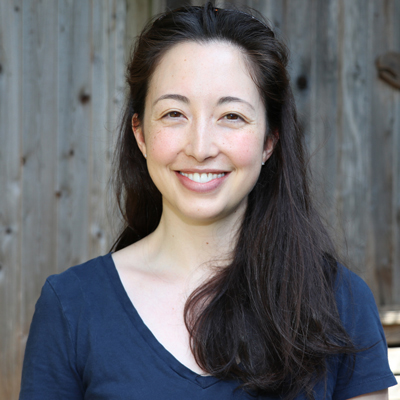
Jenny Chu,
Clinical Fellow, VGH
Supervisor: Dr. Schaeffer and and Dr. Loree
Jenny Chu is a Clinical Fellow in Gastrointestinal Pathology at Vancouver General Hospital. She is collaborating with the Pancreas Center of BC and the Loree Lab at BC Cancer for pancreatic and colorectal cancer research under the mentorship of Dr. Schaeffer and Dr. Loree.

Helene Cote, PhD
Professor, Department of Pathology and Laboratory Medicine, UBC
Dr. Cote is a Professor, Graduate Advisor, Graduate Studies Program Director, and Vice Chair of Scientific Education in the Department of Pathology and Laboratory Medicine at the University of British Columbia. She is also an Associate Member of the Women's Health Research Institute, an Investigator at the UBC Centre for Blood Research, and serves on the Scientific Advisory Committee of the Canadian Foundation for AIDS Research (CANFAR)."

Christine Collier, PhD
Clinical Professor, Department of Pathology and Laboratory Medicine, UBC | Clinical Biochemist, Royal Columbian Hospital
Dr. Collier was raised in Toronto and studied pharmacology as an undergraduate at the University of Toronto before continuing on to earn a graduate degree in Clinical Biochemistry. After completing post-doc training in Clinical Biochemistry in Winnipeg and at Memorial Sloan Kettering Cancer Center in NYC, she worked for 30 years at Kingston General Hospital and Queen's University. Her teaching career began after attending an early TIPS course at UBC, and her areas of clinical expertise include renal function, testosterone, troponin, multiple myeloma, quality control and biological variation. While earning a second Masters in Community Health and Epidemiology on a part-time basis, Dr. Collier took a sabbatical in England and Australia. She currently co-chairs the national working group on reference interval harmonization for our society.
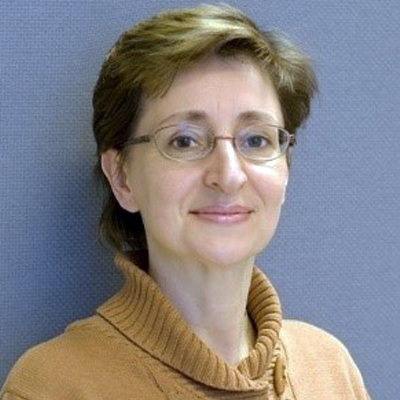
Monika Hudoba De Badyn, MD, FRCPC
Clinical Associate Professor, Department of Pathology and Laboratory Medicine, UBC | Hematopathologist, VGH
Dr. Hudoba graduated from the Hematopathology Residency training at UofT. She served as VCH Hematopathology Division Head and Regional Laboratory Hematology Leader (2006-2022), temporarily stepping into the Acting Dept. Head role in 2014-2015. During her leadership term, Hematopathology division grew from 3.5 members to a cohesive, efficient and collaborative team of 8 MDs and 1 PhD, where every member had an opportunity to develop clinical and academic expertise in a particular subspecialty. Her supportive and collaborative leadership resulted in numerous quality and utilization projects, such as implementation of testing algorithms and guidelines in VCHA, and province-wide in the field of thrombosis, autoimmune testing, clinical and diagnostic pathway for adults with acute leukemia in BC. She led the standardization and streamlined laboratory hematology processes across VCH. Her innovative spirit led to implementation of the first digital pathology in laboratory hematology in BC. On provincial scale, she served on DAP, PLCO, Test Review Committee and PLMS Discipline Lead, Hematopathology (2019-2022), leading a very productive Discipline Committee which achieved some significant milestones, including provincial deployment of digital hematopathology support for laboratories, transition to PCR based testing of malaria across all health authorities, championing the adoption of LIS middleware in laboratory medicine, among other achievements. Dr. Hudoba taught extensively selected hematology courses at BMLSc, academic rounds, resident round and other venues. During her term 2010-2014 as a Director of Hematopathology Residency training, she revamped Academic half-days, created accredited VGH-based Journal Club, Research Rounds and Quality Morphology rounds, and concluding the term with successful RCPS program accreditation. She was promoted to the academic rank of Clinical Associate professor. Her passion for quality improvement, utilization management and collaboration with leukemia and other clinical services was reflected in the works of the peer-reviewed publications, abstracts and presentations.
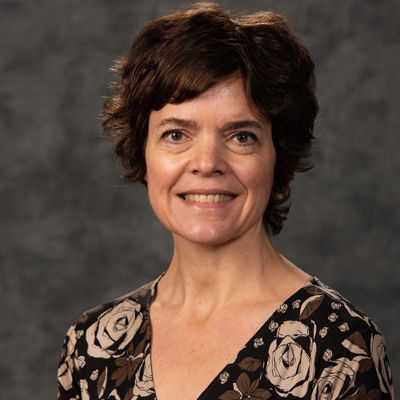
Julie Irving, MD, FRCPC
Clinical Associate Professor, Department of Pathology and Laboratory Medicine, UBC | Gynecological Pathologist, Royal Jubilee Hospital
Dr. Irving is a highly accomplished medical professional, serving as a subspecialty Gynecological Pathologist at Royal Jubilee Hospital, Clinical Associate Professor in the UBC Department of Pathology and Laboratory Medicine, and Regional Associate Academic Department Head for Island Health. She is also a Consultant in Gynecological Pathology at the BC Cancer Agency and Associate Member of the UBC Department of Obstetrics and Gynaecology. In her role as Discipline-Specific Site Leader in Pathology for the UBC Faculty of Medicine, she oversees and coordinates the Anatomical Pathology resident electives and medical student teachings for the Island Medical Program. With numerous book chapters and over 40 refereed articles to her credit, including contributions to the WHO Classification of Female Genital Tumours and Blaustein’s Pathology of the Female Genital Tract, Dr. Irving has made significant contributions to the field of pathology. She also served on the Editorial Board of the International Journal of Gynecological Pathology for 14 years.
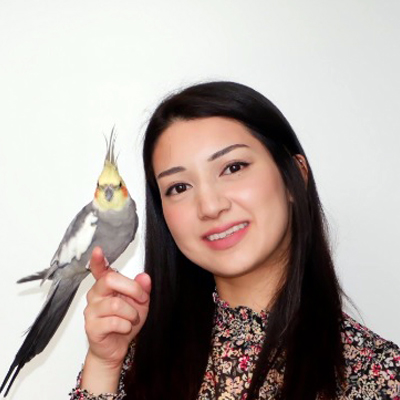
Ashley Newbigging, PhD
Clinical Instructor, Department of Pathology and Laboratory Medicine, UBC | Clinical Biochemist, Royal Columbian Hospital
Dr. Newbigging is a Clinical Biochemist for Fraser Health Authority and a Clinical Instructor in the Department of Pathology and Laboratory Medicine at the University of British Columbia. She received her BSc in Medical Laboratory Science from the University of Alberta and subsequent CSMLS certification as a Medical Laboratory Technologist. She went on to complete her PhD in Laboratory Medicine and Pathology followed by a Postdoctoral Fellowship in Clinical Chemistry, both also at the University of Alberta. Her interests include teaching bright medical laboratory science students, improving laboratory quality assurance, and managing test utilization and appropriateness.
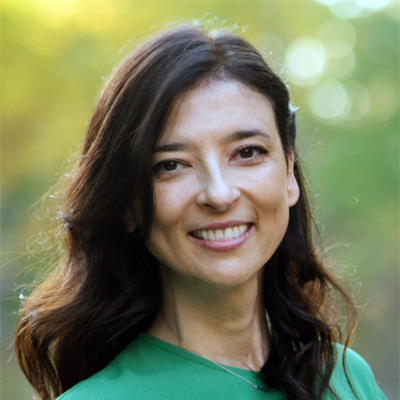
Aleksandra Stefanovic, MD, FRCPC
Clinical Associate Professor, Department of Pathology and Laboratory Medicine, UBC | Medical Microbiologist, St. Paul's Hospital
Dr. Stefanovic completed her Medical Degree and internal medicine residency at University of Ottawa, followed by fellowships in infectious diseases and medical microbiology at the University of British Columbia. She works as a medical microbiologist at St. Paul’s Hospital in Vancouver. She is Clinical Associate Professor and a Co-director of Infection Prevention and Control (IPAC) Educational Certificate Program, accredited by UBC. Along with her co-directors, she is working on revamping the Certificate Program to make it more widely available to students interested in pursing a career in a dynamic field of infection prevention and control. Dr. Stefanovic is also actively involved in lecturing medical microbiology and infectious disease fellows, supervising and mentoring medical trainees at different stages of their medical education and training. She sits on the Educational Strategic Planning Committee for Department of Pathology and Laboratory Medicine, UBC. Among her current research interests is studying the shift in Shigella spp. epidemiology, species dominance, pathogenicity and antibiotic resistance patterns in downtown Vancouver. Her team is also working on characterizing toxigenic Corynebacterium ulcerans, a zoonotic pathogen increasingly isolated from human wounds in downtown Vancouver.
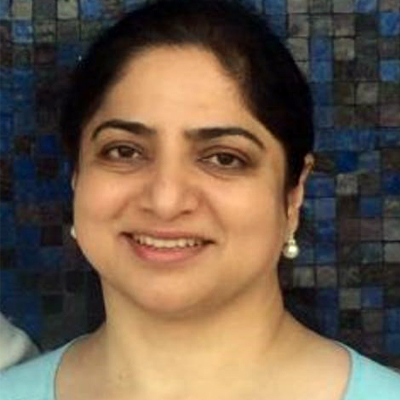
Shazia Masud, MD
Clinical Assistant Professor, Department of Pathology and Laboratory Medicine, UBC | Medical Microbiologist, Surrey Memorial Hospital
Dr. Masud studied medicine in Pakistan and finished her postgraduate studies in Medical Microbiology in 2007. After immigrating to Canada, she lived in Toronto for a few years before relocating to Vancouver to join UBC's Medical Microbiology Residency Program. Upon graduating in 2017, she joined Fraser Health as a Medical Microbiologist and Medical Lead for IPAC at Surrey Memorial Hospital. She is also a Clinical Assistant Professor and Site Director for UBC Medical Microbiology Residency and Infection Control Fellowship Programs. Dr. Masud is actively involved in teaching residents and fellows as well as teaching various undergraduate and postgraduate courses at UBC. She received recognition for her teaching last year through the Melvyn Bernstein Resident Teaching Award. Her interests include utilizing the latest molecular techniques for rapid diagnostics, studying control measures for spread of multidrug resistant organisms and participating in the regional GeoSentinel program. She enjoys teaching, mentoring, and sharing knowledge with her colleagues and trainees.
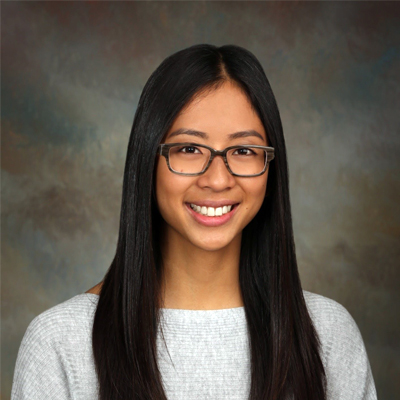
Ann Tran, MD
Clinical Assistant Professor, Department of Pathology and Laboratory Medicine, UBC | Hematopathologist, Surrey Memorial Hospital
Dr. Tran received her Bachelor of Science in Medical Laboratory Science and medical degree from the University of Alberta. She moved to Vancouver in 2018 for residency training in hematological pathology and is currently enjoying the diverse practice as a hematopathologist within the Fraser Health Authority.

Suzanne Vercauteren, PhD, MD, FRCPC
Clinical Professor, Department of Pathology and Laboratory Medicine, UBC | Hematological Pathologist, BC Children’s Hospital
Dr. Vercauteren is a Clinical Professor and Director of Equity, Diversity, and Inclusion at the Department of Pathology and Laboratory Medicine at the University of British Columbia. She is also a Hematopathologist and heads the Department of Pathology and Laboratory Medicine at BC Children's Hospital. In 2015, she founded the BC Children's Hospital BioBank, the first pediatric biobank in Canada, to standardize patient and sample collections and ensure high-quality data with reduced consent burden for patients. Her work focuses on ethical concerns and public engagement and education in biobanking.
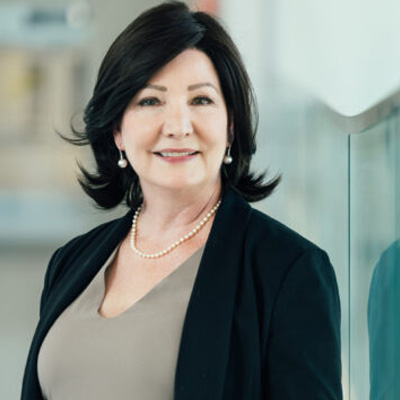
Cheryl Wellington, PhD
Professor, Department of Pathology and Laboratory Medicine, UBC | Neurologist, Djavad Mowafaghian Center for Brain Health
Dr. Cheryl Wellington is Professor and Vice Chair Research for the Department of Pathology and Laboratory Medicine, Full Member of Djavad Mowafaghian Center for Brain Health at the University of British Columbia, Principal Investigator at the International Collaboration on Repair Discoveries at Vancouver General Hospital and Associate Member of the UBC School of Biomedical Engineering. Dr. Wellington’s multidisciplinary research interests focus on Alzheimer’s Disease (AD), Traumatic Brain Injury (TBI) and neurology blood biomarkers. Her work on AD uses animal models and tissue engineered in vitro platforms to understand how lipoproteins including apolipoprotein E affect AD pathogenesis. Along with Dr. Peter Cripton, a Mechanical Engineer, Dr. Wellington founded the CHIMERA (Closed Head Model of Engineered Rotational Acceleration) animal model of TBI that is a leading model of concussion. Dr. Wellington is also leading major efforts to understand the neurological consequences of COVID-19. Dr. Wellington holds multiple leadership and executive positions in the dementia and neurotrauma communities, including the Canadian Traumatic Brain Injury Research Consortium, the Canadian Concussion Network, the International Traumatic Brain Injury Research Consortium, the Canadian Consortium for Neurodegeneration in Aging, and the Cure Alzheimer Fund Research Leaders Group.
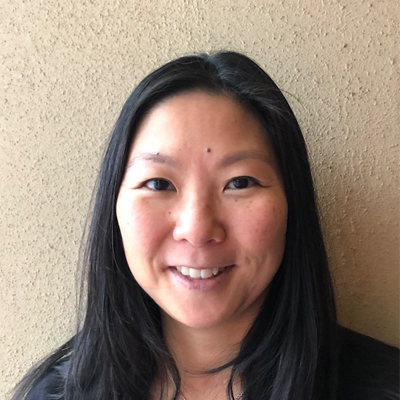
Michelle Wong, MD
Clinical Associate Professor, Department of Pathology and Laboratory Medicine, UBC | Hematopathologist, Royal Columbian Hospital
Dr. Wong is a Clinical Associate Professor and Associate Academic Department Head for Fraser Health Authority in the Dept of Pathology and Laboratory Medicine. She has worked in Fraser Health since 2008 and enjoys a varied comprehensive clinical practice. She has served in numerous administrative roles including Division Head, Regional Medical Director for Hematopathology and Transfusion Medicine. She is currently the Assistant Dean for Student Affairs Fraser in the UBC Medical Undergraduate Program. She is dedicated to and enjoys teaching medical students and residents sharing her love of Hematopathology!

Michelle Woo, PhD
Program Manager, OVCARE
Michelle Woo is Program Manager with the OVCARE program, providing strategic and organizational support to the multidisciplinary team. She plays a key role as the primary liaison with philanthropic partners both provincially and nationally. Over the past few years, she has been working closely with leadership in the Gynecologic Cancer Initiative supporting their efforts in this new province-wide initiative aimed at accelerating transformative research to impact health impact outcomes for women with gynecologic cancers. Michelle received her PhD in the Reproductive Developmental Sciences Program in the Department of Obstetrics and Gynecology at UBC. She studied under the tutelage of Dr. Nelly Auersperg with a research focus on the role of Mullerian differentiation in the pathogenesis of ovarian cancer. Prior to joining OVCARE, she managed the CIHR STIHR Program in Women's Health at UBC to implement curriculum for graduate trainees and worked closely with Program Directors of the Maternal and Child Health Program in the UBC SPPH to help build the foundation for and launch the first such program in Canada.